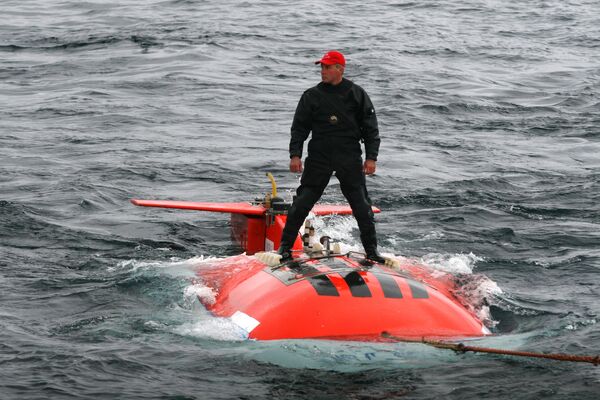IRKUTSK, September 5 (RIA Novosti) - A deep-water scientific expedition to study Siberia's Lake Baikal has been concluded, and two mini-submersibles which were involved in the research are being prepared for storage, a local lake preservation fund chief said Saturday.
The Mir-1 and Mir-2 mini-subs were scheduled to make a final dive of the expedition on Friday, but remained on dry land due to strong winds and technical problems with one of the vessels.
"We decided to cancel the dive to preserve the vessels. There will be no more dives this year," said Roman Afonin said, adding that a decision on further use of mini-submersible in the study of the world's largest freshwater lake has not yet been made.
The first part of the expedition was conducted in the summer of 2008 when the Mir-1 and Mir-2 submersibles conducted 52 dives, making several scientific discoveries. Notably, researchers took samples of oil that seeps through cracks in the lake's bedrock and is digested by microorganisms.
This summer, the Mir-1 and Mir-2 mini-submarines have been searching for new flora and fauna species, as well as diving to the lake's deepest point near Olkhon Island. The vessels made a total of 17 dives this year.
Russian Prime Minister Vladimir Putin made a 4-hour dive to the bottom of the Lake Baikal in August.
The mini-subs will return to the Akademik Mstislav Keldysh research vessel in Kaliningrad, Russia's exclave on the Baltic Sea, later in September.
Lake Baikal has a coastline of over 2,000 km and a maximum depth of 1,637 meters. It contains 83% of Russia's and 20% of the world's fresh water.


